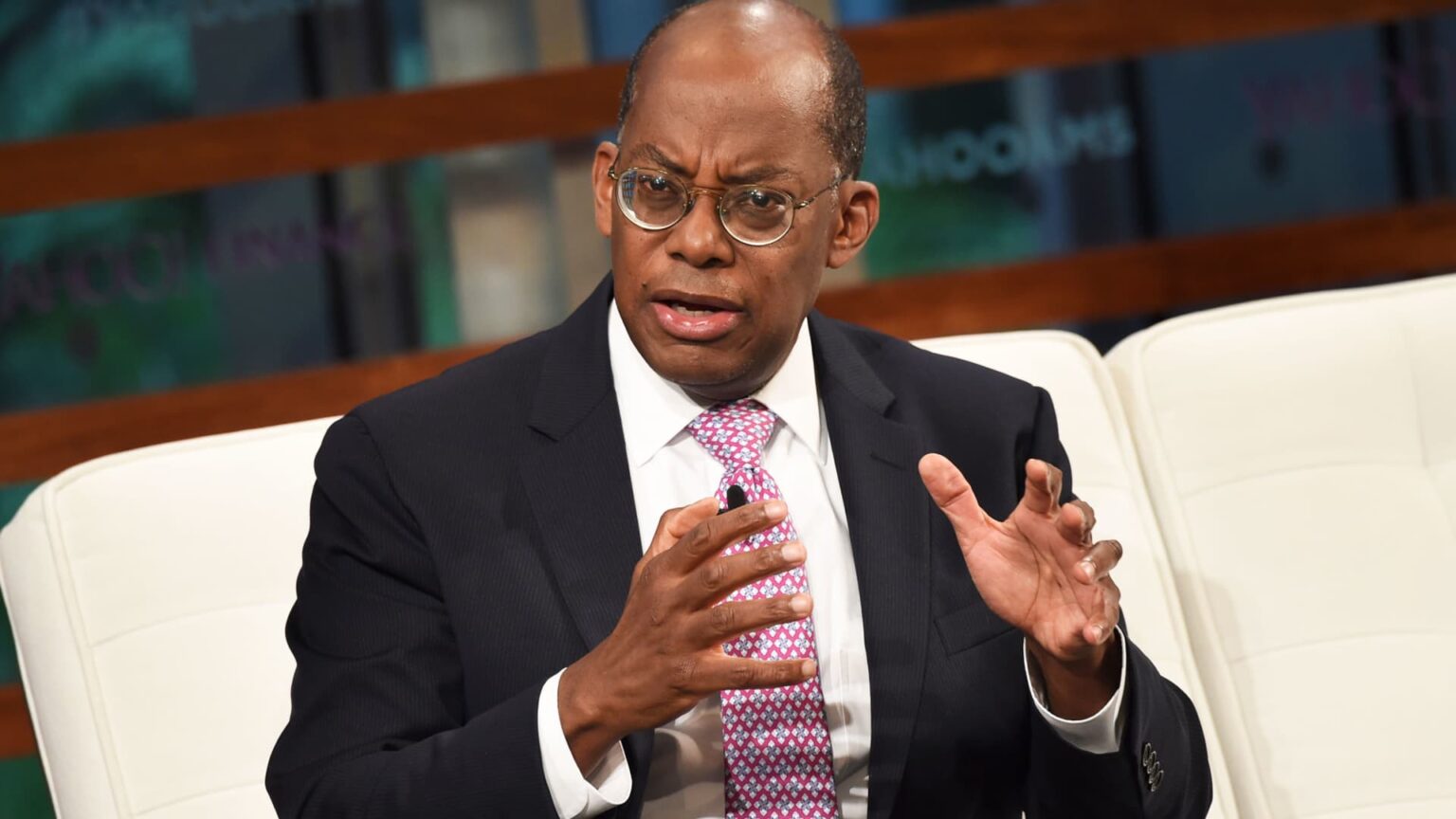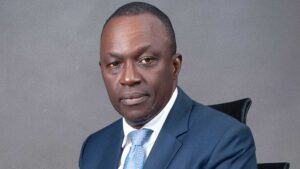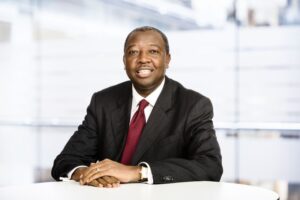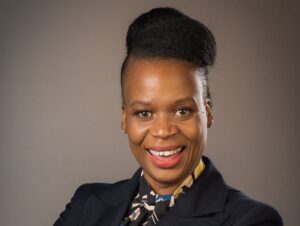Synopsis
Roger W. Ferguson, Jr., a trailblazer navigating the vast ocean of economics and law, set sail from the shores of Washington, D.C. With a compass forged at Harvard University and honed in the legal and financial realms, he charted unprecedented courses as the first African American vice chairman of the Federal Reserve Board of Governors.
Amidst turbulent economic seas, Ferguson stood at the helm of TIAA-CREF, guiding it with a steady hand, while also serving as a beacon of wisdom for President Barack Obama’s economic recovery endeavors. Along his journey, he collected accolades as tokens of recognition, not just for his leadership, but for lighting the path for future navigators of America’s financial waters.
Introduction
In the tapestry of American finance and governance, Roger W. Ferguson, Jr. emerges as a formidable weaver, intertwining threads of economics, law, and leadership into a vibrant narrative. Born under the watchful eyes of history in Washington, D.C., he charted a course through Harvard’s ivied gates, collecting laurels of knowledge with the hunger of a scholar destined for greatness.
As the first African American to anchor the vice chair of the Federal Reserve Board, Ferguson navigated the tumultuous seas of the nation’s economy with the steadiness of a seasoned captain.
Beyond the halls of power, his wisdom guided the future of financial education and stability, painting him as a beacon of progress and a custodian of economic equity. Ferguson’s journey is not just a tale of personal triumph but a saga of breaking barriers and envisioning a world where every voice is valued in the symphony of progress.
The captivating narrative that emerges will leave you in perpetual admiration, forever amazed by this iconic legend’s unstoppable spirit and unparalleled victories!
1. Who Is Roger W. Ferguson, Jr.?
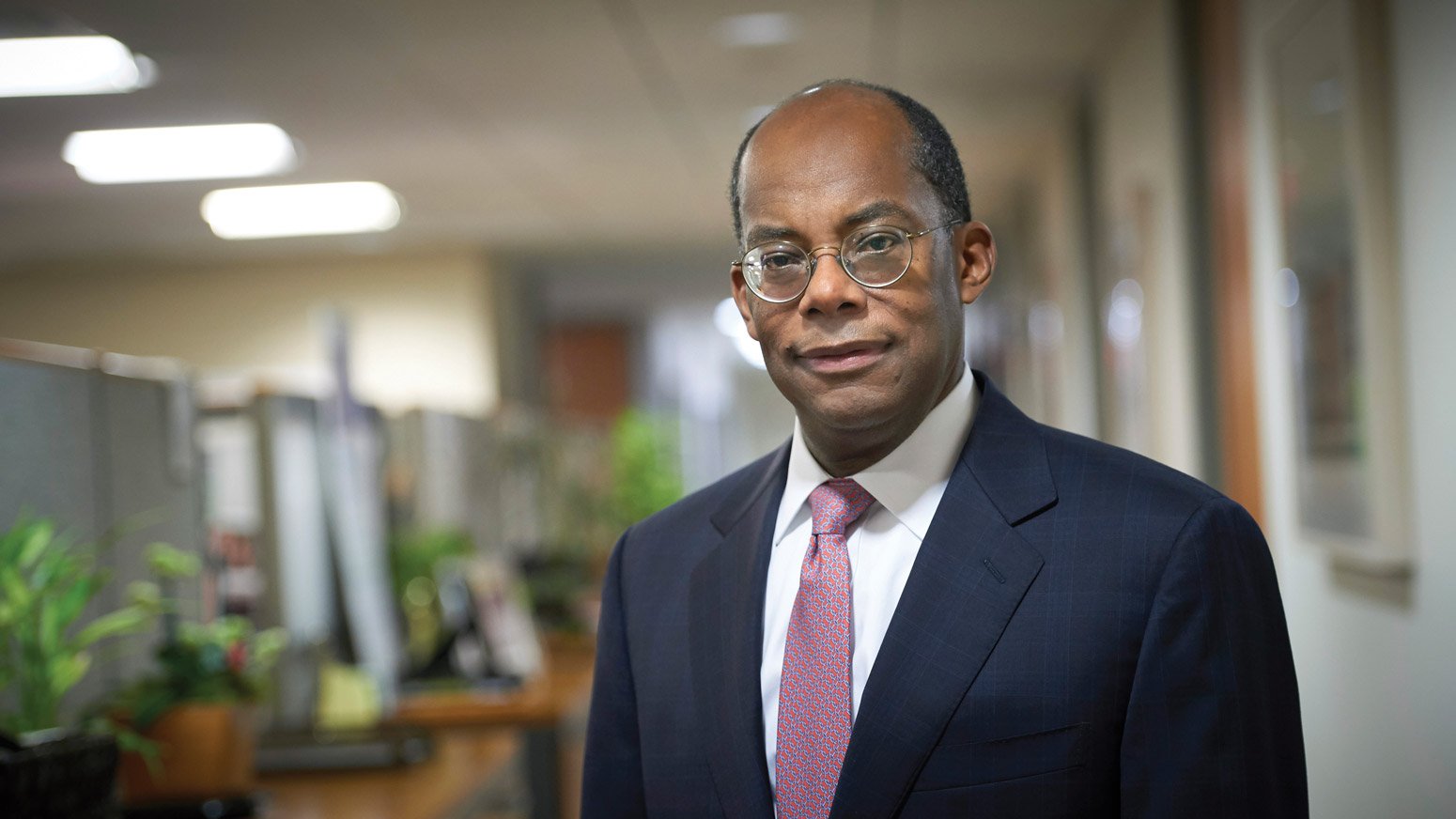
Roger W. Ferguson, Jr., born on October 28, 1951, is a luminary in economics and law, hails from Washington, D.C., born into a family where intellectual curiosity thrived. His father’s role as a cartographer for the U.S. Army and his mother’s dedication as a public school teacher undoubtedly shaped his path. Educated at the esteemed Sidwell Friends School, Ferguson’s academic prowess was evident early on.
He embarked on his journey at Harvard University, earning a Bachelor’s degree in Economics in 1973, followed by a Juris Doctor in 1979, and a Ph.D. in economics in 1981, showcasing his commitment to intellectual growth. During his academic pursuits, Ferguson’s brilliance earned him a coveted Frank Knox Memorial Fellowship, which led him to Pembroke College at Cambridge University from 1973 to 1974, enriching his global perspective.
As an attorney, partner, and later as a key figure in the Federal Reserve Board of Governors, Ferguson’s wisdom and vision guided the financial landscape. His achievements, marked by accolades and honorary doctorates, stand as testaments to his unwavering dedication and service. Beyond his professional endeavors, Ferguson finds solace and strength in the loving embrace of his family, alongside his wife, former SEC Commissioner Annette Nazareth, and their two children.
2. What Makes Roger W. Ferguson, Jr. So Special?
Roger W. Ferguson, Jr. stands as a towering figure in the realms of economics, law, and leadership, embodying resilience, intellect, and unwavering dedication. His groundbreaking achievements, from becoming the first African American vice chairman of the Federal Reserve Board of Governors to his pivotal role in steering the nation through the aftermath of the September 11 attacks, showcase his unparalleled ability to navigate tumultuous waters with grace and expertise.
Ferguson’s innovative contributions to financial stability, governance, and central banking have left an indelible mark on the global financial landscape, earning him accolades and admiration from peers and policymakers alike.
Beyond his professional prowess, Ferguson’s commitment to public service and philanthropy underscores his deep-rooted belief in fostering positive change and empowering communities for a brighter future. In essence, Roger W. Ferguson, Jr. epitomizes the epitome of excellence, a beacon of inspiration whose legacy will endure for generations to come.
3. What Does Roger W. Ferguson, Jr. Care About?
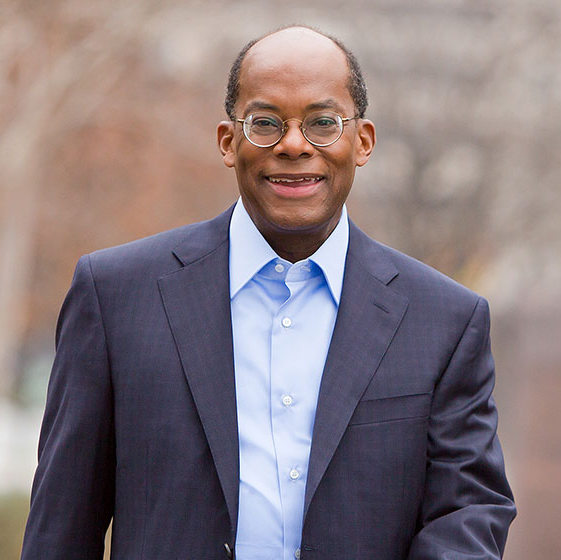
Roger W. Ferguson, Jr. is deeply committed to enhancing financial stability, advocating for comprehensive reforms to strengthen global economic resilience. His fervent belief in the power of education, evident through his extensive work in financial literacy and support for diverse educational initiatives, reflects a lifelong dedication to empowering individuals through knowledge.
Ferguson’s efforts to foster inclusivity and diversity within the financial sector and beyond demonstrate his unwavering commitment to building a more equitable society. Moreover, his leadership in times of crisis, notably during the 9/11 attacks, showcases his dedication to national security and economic recovery. At the core of Ferguson’s endeavors lies a profound commitment to public service, aiming to positively impact both the financial world and the broader community.
At this juncture in his life, Roger W. Ferguson, Jr. cherishes the time spent with his family, immersing himself in the joys of parenthood by actively participating in his children’s activities and valuing these moments above all. Beyond family, his passion for modern art remains a significant aspect of his life, demonstrated through his collection and involvement with the Museum of Modern Art, though his exploration is moderated by his responsibilities as a parent. Additionally, Ferguson indulges his intellectual curiosity by delving into economic history and biographies.
4. What Are Roger W. Ferguson, Jr. Greatest Deeds?
Leading the Federal Reserve’s Response to 9/11: As the only Federal Reserve Governor in Washington, D.C., during the September 11 attacks, Ferguson was instrumental in stabilizing the financial system amidst unprecedented crisis.
Improving Federal Open Market Committee Transparency: Initiated reforms that enhanced the clarity of Federal Open Market Committee decisions, significantly improving the transparency of the Federal Reserve’s actions.
Founding the International Journal of Central Banking: Championed the creation of a scholarly journal to promote the exchange of ideas and research on central banking, enhancing communication among central banks globally.
Chairing Influential Financial Stability Groups: Led groups such as the Group of Ten Working Party on Financial Sector Consolidation and the Group of 30 study on financial stability, producing key reports that guided global financial policy and reform.
Advising President Obama on Economic Recovery: Played a crucial role in shaping economic policy as a member of President Obama’s Transition Economic Advisory Board and the President’s Economic Recovery Advisory Board.
Promoting Governance in Financial Institutions: Led studies and published works aimed at improving the governance and culture within financial institutions, contributing to a more stable and ethical financial industry.
Addressing the Macroeconomic Effects of Aging: Co-chaired a National Research Council panel on the long-term macroeconomic effects of an aging U.S. population, providing valuable insights into future economic challenges.
Philanthropic Efforts: Alongside his wife, established an endowment to support the director position at the Anacostia Community Museum, showcasing a commitment to community and education.
Roger W. Ferguson, Jr.’s illustrious career is marked by a series of prestigious accolades, such as the William F. Butler Memorial Award in 2006 for his significant contributions to business economics, and the Visionary Award in 2009 that celebrated his forward-thinking in economic education.
His commitment to leadership and community empowerment was recognized in 2013 with the Leadership Award from the National Urban League, and his dedication to overcoming challenges and supporting youth was honored with the Beat the Odds Award from the Children’s Defense Fund in 2016. These awards underscore Ferguson’s impactful journey through the realms of economics, education, and community service.
5. What Has Roger W. Ferguson, Jr. Faced as Challenges?
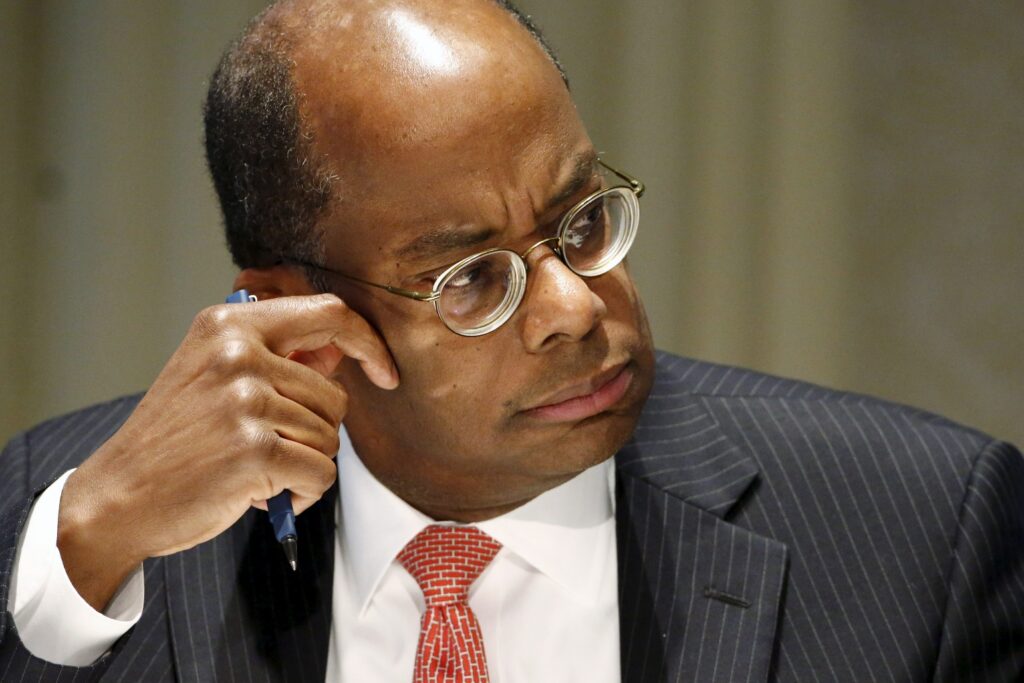
Roger W. Ferguson, Jr.’s journey, while marked by remarkable achievements, undoubtedly navigated through a complex web of challenges typical for individuals holding positions of significant influence in the financial and economic sectors. Steering through the ever-evolving financial landscapes, Ferguson grappled with issues ranging from financial stability and regulatory reforms to global economic risks, all while balancing the mantle of leadership across revered institutions like the Federal Reserve and TIAA. His role demanded not only a deep understanding of financial intricacies but also the adeptness to manage the high expectations tied to such leadership positions. This challenge was further compounded by the task of straddling the line between public service and private sector leadership. Ferguson provided sage economic advice to government officials and led a Fortune 100 financial services organization, embodying the role of a bridge between policy and practical financial solutions.
In an industry perennially at the cusp of technological advancements and globalization, Ferguson faced the daunting task of addressing the financial sector’s evolving needs. His tenure required a commitment to fostering transparency, nurturing effective communication, and building trust among diverse stakeholders. Moreover, his advocacy for inclusive and equitable economic policies underscored his tenure, emphasizing the importance of creating opportunities that span across retirement services and extend into the academic, research, medical, and cultural domains.
6. What Keeps Roger W. Ferguson, Jr. Motivated?
Commitment to public service: Ferguson has held significant roles in government institutions, such as the Federal Reserve, and has actively contributed to the stability and functioning of the U.S. financial system. His dedication to public service and making a positive impact on the economy may serve as a source of motivation.
Passion for economics and finance: With a background in economics and extensive experience in the financial sector, Ferguson’s passion for these fields likely plays a role in keeping him motivated. His interest in reading economic history and biographies further demonstrates his intellectual curiosity and engagement with the subject matter.
Family and personal interests: Ferguson understands the importance of family and his involvement in his children’s activities. Balancing personal and professional commitments can be a motivating factor for individuals, especially when it comes to spending quality time with loved ones. Additionally, his interest in modern art and involvement with the Museum of Modern Art showcases his passion for the arts and cultural pursuits.
7. Why Is Roger W. Ferguson, Jr. Such a Role Model?
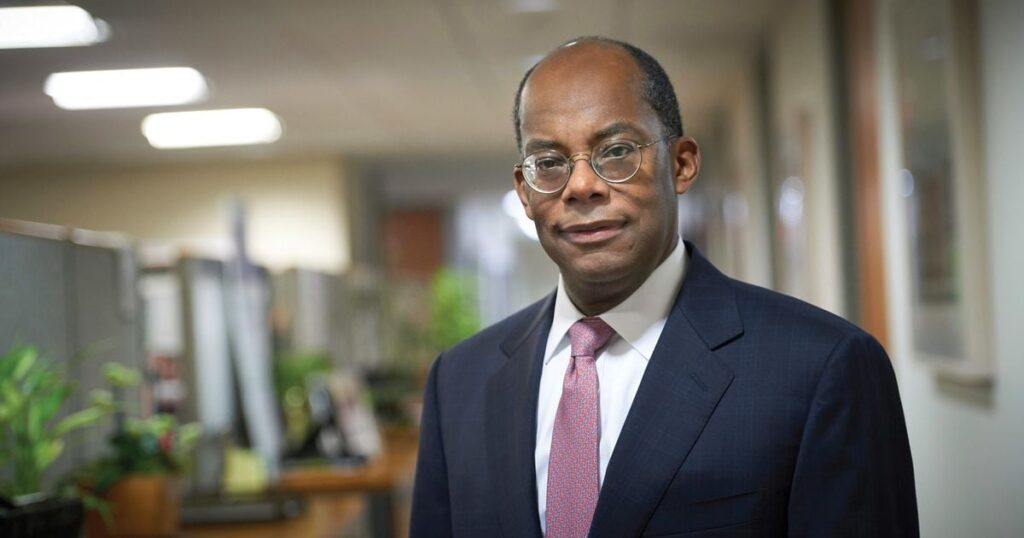
Roger W. Ferguson Jr. stands as a towering beacon of achievement and resilience, charting a course through the realms of economics, law, and leadership that many can only aspire to follow. His journey from the halls of Sidwell Friends School to the hallowed grounds of Harvard University, where he collected a bouquet of degrees — a B.A. in Economics, a J.D., and a Ph.D. in economics — is nothing short of legendary.
Ferguson’s intellect and ambition propelled him into roles where he not only witnessed history but shaped it, notably as the first African American vice chairman of the Federal Reserve Board of Governors. Amidst the chaos of the 9/11 attacks, his steady hand guided the nation’s financial response, a testament to his unparalleled leadership.
But Ferguson’s story isn’t just about the titles he’s held or the crises he’s navigated; it’s about breaking barriers and paving roads for those who follow. His involvement in prestigious organizations, his commitment to public service, and his advisory role to a president showcase a life dedicated not just to personal success but to the greater good.
Through his numerous awards and recognitions, Ferguson reflects the brilliance of melding profound professional achievements with a deep-seated commitment to societal progress. Roger W. Ferguson Jr. is more than a role model; he’s a living legacy, inspiring future generations to dream big, break boundaries, and contribute to a world that beckons for their talents.
8. What Is Roger W. Ferguson, Jr. Currently Working On?
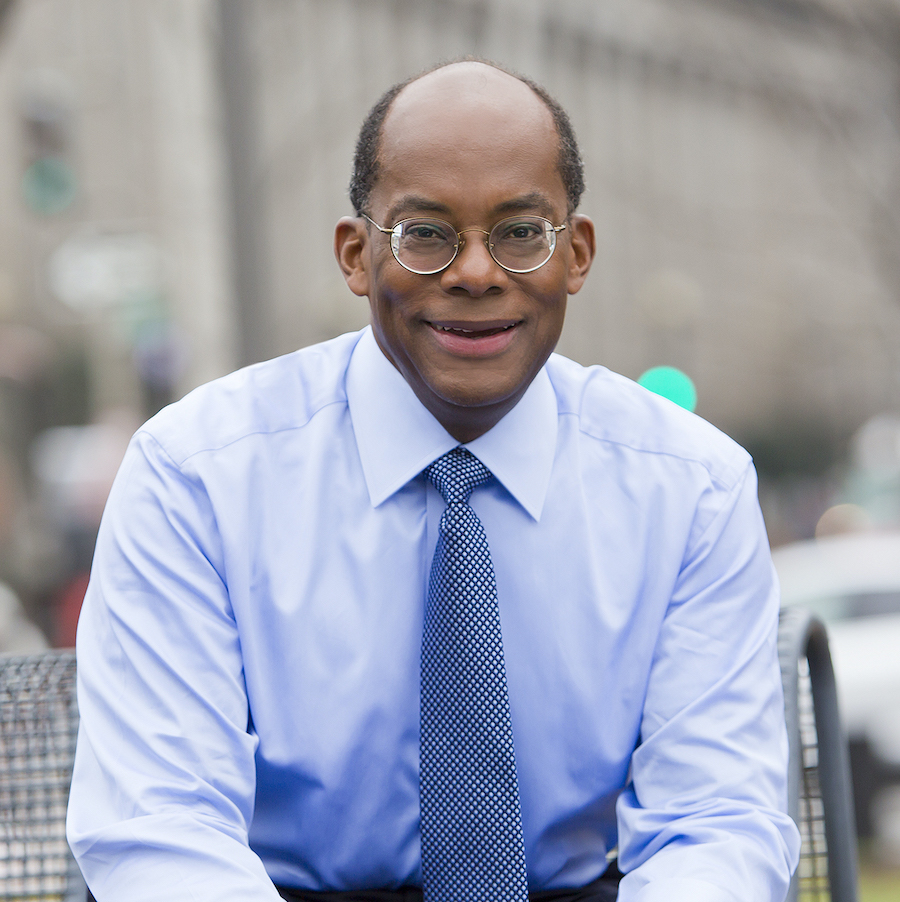
Roger W. Ferguson, Jr. skillfully weaves a tapestry of influence and service across a spectrum of prestigious arenas, exemplifying the quintessential Renaissance man of the modern age. As the Steven A. Tananbaum Distinguished Fellow for International Economics at the Council on Foreign Relations, he navigates the intricate world of global economics, sharing his profound insights with the international community.
His strategic seat on the boards of Alphabet Inc., Corning Inc., and International Flavors & Fragrances Inc. marks him as a cornerstone in the edifice of corporate innovation and sustainability.
Venturing beyond the corporate sphere, Ferguson’s keen interest in fintech startups positions him as a guiding light in the financial technology revolution, heralding an era of digital transformation. His involvement with institutions such as The Conference Board, the Institute for Advanced Study, and the Memorial Sloan Kettering Cancer Center reflects a deep commitment to advancing knowledge, health, and education.
His stewardship in cultural and memorial organizations, including Columbia University’s Teachers College, the Norton Museum of Art, and the 9/11 Memorial & Museum, alongside his role in the Smithsonian Institution’s Board of Regents, showcases his dedication to enriching the fabric of society through arts, history, and learning. Through this diverse portfolio of engagements, Roger W. Ferguson, Jr. demonstrates an unwavering passion for nurturing progress, culture, and community well-being, cementing his legacy as a luminary of our time.
9. What Could Slow Roger W. Ferguson, Jr. Down?
It is difficult to determine specific factors that could slow down Roger W. Ferguson, Jr. However, like any individual, there are several potential factors that could impact his productivity or effectiveness:
- Workload and Responsibilities: Ferguson holds various professional and board roles, which may involve a significant workload and responsibilities. Balancing multiple commitments can sometimes be challenging and may potentially slow down progress in certain areas.
- External Factors: External factors such as economic conditions, policy changes, or global events can impact the effectiveness and progress of individuals in leadership positions. Ferguson’s work in the financial sector and his involvement in economic policy groups may be influenced by such external factors.
- Personal Circumstances: Personal circumstances, such as health issues or family commitments, can affect an individual’s ability to maintain a fast-paced work schedule or take on additional responsibilities.
- Organizational Dynamics: The dynamics within the organizations where Ferguson holds positions, such as TIAA or the boards he serves on, can also impact his ability to drive initiatives or make progress on certain projects. Factors such as bureaucracy, decision-making processes, or conflicting priorities within these organizations could potentially slow down progress.
10.What Can You Learn From Roger W. Ferguson, Jr.?
Leadership and Crisis Management: Ferguson’s role as the Vice Chairman of the Federal Reserve during the September 11 attacks showcased his leadership skills and ability to navigate challenging situations. He played a crucial role in ensuring the functioning of the U.S. financial system and reassuring the global financial community.
Expertise in Economics and Finance: With a background in economics and extensive experience in the financial sector, Ferguson possesses a deep understanding of economic principles and financial markets. His roles at the Federal Reserve and TIAA demonstrate his expertise in these areas.
Commitment to Public Service: Ferguson’s involvement in various organizations and policy groups, such as the Council on Foreign Relations and the Smithsonian Institution’s Board of Regents, reflects his commitment to public service and contributing to the betterment of society.
Philanthropy and Education: Ferguson’s engagement with educational institutions, such as serving on the boards of Lincoln College and Webster University, highlights his dedication to promoting education and supporting academic institutions. His involvement in philanthropic endeavors further demonstrates his commitment to giving back to the community.
Pro Tips
Leadership in Crisis: Ferguson’s pivotal role post-9/11 showcased the importance of strong leadership in turbulent times, ensuring the stability of the U.S. financial system and global confidence.
Commitment to Public Service: Ferguson’s philanthropic endeavors and involvement in policy groups highlight the value of giving back to society for personal growth and community impact.
Balancing Multiple Roles: Ferguson’s adeptness at managing diverse responsibilities emphasizes the importance of effective time management and task prioritization for productivity.
Continuous Learning and Intellectual Curiosity: Ferguson’s passion for learning and exploration stresses the benefits of ongoing intellectual growth and curiosity for personal and professional development.
Engagement in Board Membership: Ferguson’s participation on various boards demonstrates the value of board roles in strategic decision-making and governance.
Commitment to Education: Through his support for educational institutions, Ferguson underscores the importance of lifelong learning and investing in education for societal advancement.
Summary
Roger W. Ferguson, Jr. is a highly accomplished individual who has made significant contributions in the fields of economics, finance, and public service. With a distinguished career that includes serving as the Vice Chairman of the Federal Reserve and as the President and CEO of TIAA, he has demonstrated exceptional leadership during times of crisis and a deep understanding of economic principles.
Through his various roles and involvement in philanthropy, he continues to inspire others, exemplifying the values of expertise, commitment to public service, and continuous learning.


